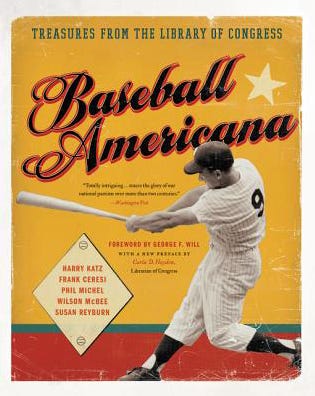Sports Biblio Digest 5.6.18: ‘Baseball Americana’ Returns to the Library of Congress

News, Views and Reviews About Sports Books, History and Culture
In This Issue: 30 Baseball Book Reviews in 30 Days; Kentucky Derby; Peter King; 50 Years Ago at Bournemouth; Sir Alex Ferguson; Bill Veeck; LeBron’s Activism; Ichiro Suzuki; ‘Little Mo’ Mancuso
Welcome to the Sports Biblio Digest, an e-mail newsletter delivered each Sunday. You can subscribe here and search the archives.
This is Digest issue No. 123, published May 6, 2018. The Digest is a companion to the Sports Biblio website.
I’d love to hear what you think about the Digest, and Sports Biblio. Send feedback, suggestions, book recommendations, review copies, newsletter items and interview requests to Wendy Parker at sportsbiblio@gmail.com. You can also follow Sports Biblio on Twitter and hit the “like” button on Facebook.
* * * * * * * *
The original Laws of Base Ball from 1857 were auctioned off for $3.26 million in the spring of 2016, not quite a record for sports memorabilia but a high sum for a set of sports documents.

Now, the papers known as the “Magna Carta” of baseball and handwritten by “Doc” Adams of the New York Knickerbockers Club, are headed to Washington, D.C. this summer for a sweeping exhibition of Baseball Americana at the Library of Congress.
Also included in the yearlong exhibition will be several artifacts from the Baseball Hall of Fame, including a pair of shoes worn by Babe Ruth and a letter from Jackie Robinson to Branch Rickey in gratitude for his opportunity to break baseball’s color line.
This is the third such “Baseball Americana” exhibit at the Library of Congress, and the accompanying illustrated catalogue for the 2018-19 run has just been published.
The opening coincides with the run-up to the baseball All-Star Game in Washington on July 17, and the exhibit also includes many baseball items from the LOC’s vast archives for the sport.
Still, it’s the “Laws of Base Ball” that figures to draw much of the attention. Considered lost not that many years ago, the “Laws” were auctioned in 1999 by Sotheby’s, selling for $12,650.
The documents show the pre-Doubleday historic arc of the game, according to exhibit curator Susan Reyburn:
“It kind of just captures your imagination that this is a game that is going on in the Colonial period, early American history, and we’re still playing it."
Shortly before the 2016 auction, official baseball historian John Thorn delved into the making of the “Magna Carta,” and the 1857 convention that adopted those foundational rules, here and here.
He likens the documents to the “Dead Sea Scrolls of Baseball that will keep scholars busy for years to come.”
So Many Good Reads
If it’s May, it means that all 30 of Tom Hoffarth’s 30 baseball book reviews in the 30 days of April are done, and they’re all catalogued here. He includes a few others he couldn’t review due to publishing dates and delays. It’s a great, eclectic list that ought to keep die-hard fans reading all summer long;
The epic collapse of the 1964 Phillies makes for the most intriguingly-titled book of the lot, Carl Wolfson’s “Slide.” Hoffarth says he’s in, especially with the sitcom-ishy subtitle “The Baseball Tragicomedy That Defined Me, My Family, and the City of Philadelphia–And How It All Could Have Been Avoided Had Someone Just Listened to My Lesbian Great Aunt;"
A sixth consecutive Kentucky Derby favorite has won the first leg of the Triple Crown, as Justify roared to victory Saturday at a muddy Churchill Downs track. Bob Baffert’s sixth Derby winner (with 3-1 odds) also became the first Derby winner not to have raced as a two-year-old since 1882;
Jerry Izenberg, columnist emeritus of the Newark Star-Ledger, is almost 88, and before Saturday’s race turned in this set-up piece with a lead that Hunter Thompson might have admired;
From Rick Maese of The Washington Post: Dancer’s Image, drugs and MLK, about the dragged-out, scandalous conclusion to the 1968 Kentucky Derby, resulting in the only time a winning horse was disqualified;

The exodus from Sports Illustrated continues, and this is a big one: NFL writer Peter King departs after 29 years for NBC, who said “I just felt it was time to move on from the 24/7-ness of football coverage and try something a little bit different.” His popular Monday morning column starts in July on on the ProFootballTalk vertical, right before the start of training camp;
Also leaving the lodge, and this a full departure apparently, is Bud Shaw of the Cleveland Plain-Dealer, after 27 years in that town and 40 years in newspapers;
The West Hants Club in Bournemouth, England, no longer has the word “tennis” in its name, but it was a critical venue 50 years ago when it played host to the first tournament of the Open Era, the finals of the British Hard Court Championships featuring Aussies Rod Laver and Ken Rosewall;
From Mother Jones, an excerpt from Howard Bryant’s “The Heritage” about LeBron James’ political activism in the wake of Black Lives Matter. The book is due out on Tuesday;
More on Bryant in this Q & A for The Nation with Dave Zirin, who’s just published a book with Michael Bennett, now of the Eagles on a similar topic, and whose Jim Brown biography comes out May 15; Scott Simon of NPR Weekend interviews Bryant, who’s a regular contributor on that program;

Bryant’s double-dipping on the publishing front, too, with “Sisters and Champions,” about Venus and Serena Williams, publishing May 29;
Jason Whitlock with a counter-narrative about the current wave of black sports activism, saying Jesse Owens, Joe Louis and Jackie Robinson have done more than any other athletes in history to elevate African-Americans into the mainstream;
The White Sox are off to a bad start this year, and the Chicago Reader has dug through its archives to find a 1976 gem of an interview with Bill Veeck, who had just re-acquired the team. In the presidential election right before Watergate, Veeck admitted he voted for American socialist figure Norman Thomas, who had passed away in 1968: “I'd rather vote for a dead man with class than two live bums;"
Ichiro Suzuki unofficially retired from Major League Baseball this week, after more than 3,000 hits and stepping into a front office position with the Seattle Mariners, where he spent most of his days since coming from Japan. At the Seattle Times, beat writer Larry Stone quoted from John Updike’s famous story about Ted Williams’ last game: “So he knew how to do even that, the hardest thing. Quit,” and then concluded that Ichiro “walked away with his dignity intact;”
At SB Nation, Graham MacAree wrote about the enigma of Ichiro in terms of culture and his demeanor: “If you’re not a Japanese player hoping to make a dent in the American game, his refusal to play everyone else’s game may be the most important part of his legacy;”

Also this week, Albert Pujols racked up his 3,000th hit, and at the Orange County Register, Kurt Snibbe breaks down the numbers and tries to place them in some historical context;
Manchester United managerial great Sir Alex Ferguson, 76, has had emergency surgery for a brain hemorrhage and is in intensive care;
At Outside, the story about a forgotten marathoner, Maureen Mancuso, who was 13 years old in 1967 when she shattered the women’s world record, not long after Kathrine Switzer’s breakthrough appearance at the Boston Marathon. A book, “Little Mo,” is due out next year about Mancuso and her feat;
There aren’t many female sports agents around the world, but Italian-born Debora Zoli is holding her own as a FIBA-licensed representative for several dozen basketball players, mostly in European and Asian leagues.


